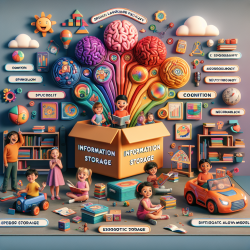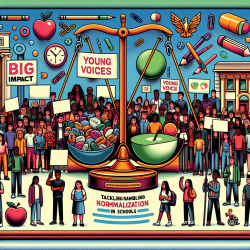Introduction
In the ever-evolving field of speech-language pathology, understanding the intricate relationship between information storage and human development is crucial. The research article "Storage of Information and Its Implications for Human Development: A Dialectic Approach" by Zlotnik and Vansintjan (2020) offers profound insights into how the storage of information influences cognition and consciousness. This blog aims to distill these insights into actionable strategies for practitioners, with a focus on improving outcomes for children.
The Dialectical Model: A New Perspective
The dialectical model proposed by Zlotnik and Vansintjan suggests that the storage of information, especially exosomatic (external) storage, plays a pivotal role in shaping human consciousness and neurophysiology. This model posits that environmental changes, consciousness, and neurophysiology develop together, leading to irreversible qualitative changes in human cognition. For practitioners, this implies that the way information is stored and retrieved can significantly impact a child's cognitive development.
Practical Implications for Practitioners
For speech-language pathologists, understanding the implications of exosomatic information storage can enhance therapeutic strategies. Here are some practical ways to implement these insights:
- Incorporate Technology: Utilize digital tools and platforms to create a rich, interactive learning environment. This can help children engage with information in a dynamic way, promoting cognitive development.
- Focus on Multimodal Learning: Encourage the use of various sensory modalities in learning activities. This aligns with the idea that cognition is extended and embodied, enhancing the child's ability to process and store information.
- Promote Self-Reflection: Encourage children to reflect on their learning experiences. This can help them develop a deeper understanding of themselves and their cognitive processes, fostering self-awareness and consciousness.
Encouraging Further Research
While the dialectical model offers a compelling framework, there is still much to explore. Practitioners are encouraged to engage with ongoing research and contribute to the understanding of how information storage affects child development. Collaborating with researchers can lead to innovative approaches and improved therapeutic outcomes.
Conclusion
Incorporating the insights from "Storage of Information and Its Implications for Human Development: A Dialectic Approach" into practice can lead to transformative outcomes for children. By understanding the profound impact of information storage on cognition, practitioners can develop strategies that foster enhanced learning and development. To delve deeper into the original research, please follow this link: Storage of Information and Its Implications for Human Development: A Dialectic Approach.










